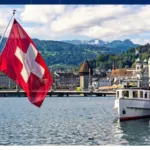New Delhi- The G20 summit concluded on Sunday as India gracefully passed the bloc’s presidency to Brazil. This transition of leadership, however, wasn’t the only headline from the event. The summit ended with both the United States and Russia commending a consensus that, rather unexpectedly, refrained from condemning Moscow for its involvement in the Ukraine conflict but instead urged all member states to avoid the use of force.
Indian Prime Minister Narendra Modi, in his closing remarks, proposed a virtual meeting in November to assess progress on the policy recommendations and goals outlined during the weekend. He emphasized the shared responsibility to expedite progress on these vital matters.
On Saturday, the G20 leaders jointly adopted a Leaders’ Declaration that notably refrained from direct condemnation of Russia’s actions in Ukraine. Instead, it spotlighted the profound human suffering caused by the conflict and called upon all nations to abstain from using force for territorial expansion.
The emergence of this consensus was indeed surprising, given the starkly differing positions on the Ukraine issue in the lead-up to the summit. Western nations had vehemently urged G20 members to condemn Russia’s invasion, while Russia had threatened to veto any resolution not aligned with its stance.
Russian Foreign Minister Sergei Lavrov, heading the Russian delegation, hailed the summit as a triumph for India and the Global South, which represents the world’s developing nations. Lavrov asserted that the Global South’s engagement prevented the G20’s agenda from being overshadowed by the Ukraine conflict.
White House national security adviser Jake Sullivan expressed satisfaction with the summit’s declaration, stating that it effectively upheld the principle that states should not employ force to acquire territory or violate the territorial integrity, sovereignty, or political independence of other nations.
Although Germany and Britain praised the resolution, Ukraine expressed disappointment in the outcome. French President Emmanuel Macron acknowledged that the G20, initially formed to address international economic matters, might not be the ideal platform for diplomatic progress on the Ukraine crisis. Nonetheless, Macron asserted that the G20 declaration did not signify a diplomatic victory for Russia.
Japanese Prime Minister Fumio Kishida voiced concerns about how Russia’s invasion of Ukraine could undermine cooperation within the G20 and exert a significant impact on the global economy, including rising food and energy prices.
Russia’s 2022 invasion of Ukraine has inflicted substantial casualties, displaced millions, and triggered economic turmoil worldwide. Moscow continues to refer to its actions as a “special military operation” and denies allegations of atrocities.
The summit also marked a historic moment by admitting the African Union, encompassing 55 member states, as a permanent member of the G20, underscoring the bloc’s commitment to inclusivity by including more developing countries.
Addressing food security concerns, Lavrov stated that Russia would reconsider the Black Sea deal, allowing Ukraine to export grain, provided Moscow’s conditions were met. Russia had withdrawn from this agreement in July, citing Ukraine’s failure to fulfill its demands for a parallel agreement easing regulations on Russian food and fertilizer exports.
The summit document emphasized the necessity of a secure flow of grain, food, and fertilizer from both Ukraine and Russia. President Tayyip Erdogan of Turkey announced that Russia, Ukraine, and Turkey would continue discussions on the grain deal, expressing optimism about its revival.
Svetlana Lukash, the Russian G20 government negotiator, acknowledged the summit’s arduous nature, stating that it was one of the most challenging G20 summits in its nearly two-decade history. Disagreements on Ukraine were a central point of contention, but disparities on key issues, particularly climate change and the transition to low-carbon energy systems, also contributed to the prolonged negotiations.
An anonymous European Union official declared that the Ukraine conflict had been the most contentious issue throughout the negotiations, crediting India’s leadership alongside crucial roles played by Brazil and South Africa in bridging these differences.
Notably, Chinese President Xi Jinping and Russia’s Vladimir Putin were absent from the summit.
Reuters, source




